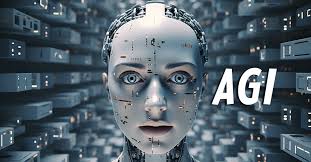Artificial General Intelligence (AGI) is a concept many tech companies, like OpenAI, are eagerly pursuing, aiming to develop systems that could benefit all of humanity. With OpenAI raising $6.6 billion to inch closer to this goal, it’s clear that AGI is a big deal. Yet, what exactly AGI means remains a mystery to many – even to some of the top experts in the field.
Fei-Fei Li, a world-renowned AI researcher often referred to as the “godmother of AI,” recently shared that she is also uncertain about what AGI really is. Speaking at Credo AI’s Responsible AI Leadership Summit, Li admitted that she doesn’t fully grasp the concept of AGI either. Despite her pivotal role in the development of modern AI, she expressed skepticism over vague terms like AGI, stating she doesn’t spend much time thinking about it, given her academic background in rigorous, evidence-based AI methods.
Li, who created ImageNet in 2006, which became essential in the AI revolution, has played a significant role in shaping the field. From 2017 to 2018, she served as the Chief Scientist of AI and Machine Learning at Google Cloud. Today, she leads Stanford’s Human-Centered AI Institute and is also heading her own startup, World Labs, which is working on “large world models” – a term that seems as unclear as AGI for many.
While Li may not have a clear understanding of AGI, OpenAI CEO Sam Altman has attempted to define it. He once described AGI as being comparable to the abilities of an average human you could hire for a job. OpenAI’s charter refers to AGI as highly autonomous systems that surpass humans in performing most economically valuable tasks. To track progress, OpenAI developed a five-level framework ranging from chatbots to systems that could potentially run entire organizations. However, this complex framework still leaves many, including Li, wondering about the practicality of AGI.
In her talk, Li discussed her passion for understanding intelligence, a journey that began when she was a young girl. She described how she and a few other researchers were laying the groundwork for AI’s future long before it became a profitable field. Reflecting on AI’s evolution, she said that in 2012, the combination of ImageNet, AlexNet, and GPU computing sparked a revolution that forever changed the landscape of artificial intelligence.
Li also touched on her concerns about AI regulation. Although she voiced reservations about California’s AI bill (SB 1047), which was recently vetoed, Li looks forward to contributing to future regulatory discussions. Governor Newsom has invited her to help shape the state’s approach to AI governance, and she plans to advocate for a balance between technological innovation and public safety.
In the years ahead, Li is eager to advance what she calls “spatial intelligence,” which goes beyond merely teaching computers to see. It involves enabling machines to fully understand and navigate the three-dimensional world, bringing us closer to bridging the gap between perception and action. For Li, this is the next frontier in AI development.

